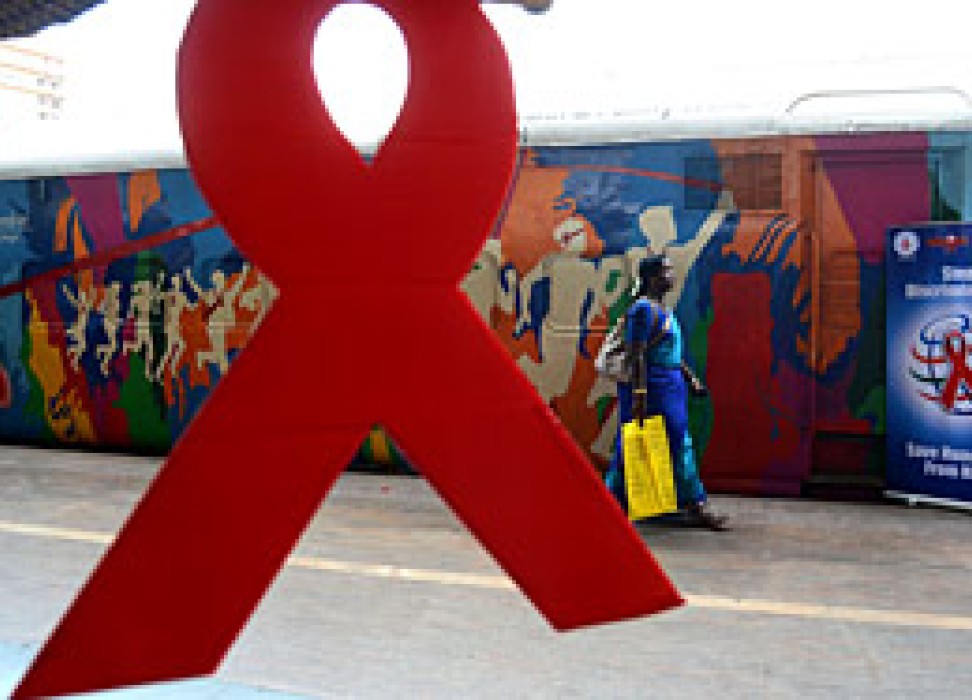Busting the myth that sterilization can end AIDS
28 August 2012

“I was admitted for [an unwanted] pregnancy and the doctor came to tell me that I was HIV positive. I was confused and I took the poison overdose. They said that when we do the abortion we will also do a BLT [bilateral tubal ligation]. I said no and they replied that if I did not want it they could not do the abortion. I was stuck. Later I agreed to sign the form for the operation – it was not my will,” said Grace*, a Namibian woman living with HIV.
Grace’s story, which was recounted in a 2009 report by the International Community of Women Living with HIV/AIDS (ICW), is emblematic of the many cases of forced sterilisation still reported today. Such cases have been reported among HIV positive women in Chile, the Dominican Republic, Indonesia, Kenya, Mexico, Namibia, South Africa, Swaziland, Tanzania, Thailand and Venezuela, Zambia amongst others. This alarming trend was also brought to the attention of the Human Rights Council at its 19th session during a panel discussion on HIV.
Sterilization has been used in countries as a way to curb transmission of HIV and unwanted pregnancies. The ICW noted that women living with HIV were pressured by health care workers to provide ‘informed consent’ for sterilization, or provided consent after the sterilization procedures had been performed.
This response to the AIDS epidemic was contradicted by a 2011 report from UNAIDS which shows that new HIV infections among children globally have reduced by 24 per cent in the past two years due to improved access to services that prevent mother-to-child transmission, including prophylaxis regimens.
Moreover, the ICW report revealed that the fear of being manipulated into having an abortion or being sterilized may deter HIV positive women from seeking necessary medical treatment and counselling, and thus increase the risk of transmission.
The Special Rapporteur on the right to health, Anand Grover has said that coercion by the State or non-State actors, such as in cases of forced sterilization has long been recognized as an unjustifiable form of State-sanctioned coercion and a violation of the right to health.
“Numerous countries have taken inadequate action against individuals who perform non-consensual sterilizations, and some have even sanctioned such procedures in national ‘family planning’ initiatives with anti-natalist undertones based on racial or ethnic discrimination,” he said.
Eliminating women’s ability to bear children without their informed consent - under physical or emotional constraint, and without providing accessible information on sterilization or providing other contraceptive options - violates their human rights. International law guarantees freedom from discrimination and from cruel, inhuman and degrading punishment; the right to found a family; the right to privacy; the right to information; and the right to the highest attainable standard of physical and mental health and reproductive self-determination, regardless of HIV status.
These rights were at the centre of a ruling in July 2012 by the Namibian High Court on a case against the State.
Three women living with HIV claimed they had been sterilized without their informed consent and because of their HIV status. They had opted for Caesarean deliveries at a public hospital to minimize the risk of transmitting the virus to their babies. The Namibian High Court found that the claimants had been sterilized without their informed consent but did not find any evidence, as presented, to support claims of discrimination based on their HIV positive status. Significantly, the High Court stated that “consent is more than just written consent, but informed consent” and that “it is a surgeon’s legal duty to obtain informed consent from a patient.”
“This constitutes an important judgment which will have far reaching consequences for many other women living with HIV who have allegedly been or could be subjected to coerced sterilization in Namibia and other countries in the world,” said UN Human Rights Chief, Navi Pillay. She further emphasised that “under international human rights law any discrimination on the grounds of HIV status is clearly prohibited.”
She stressed that Governments should look into such cases further, issue clear directives, train health care providers and promote non-discrimination and informed consent in healthcare settings, as well as facilitate access to sexual and reproductive health and HIV services.
*Assumed name
28 August 2012

VIEW THIS PAGE IN:


